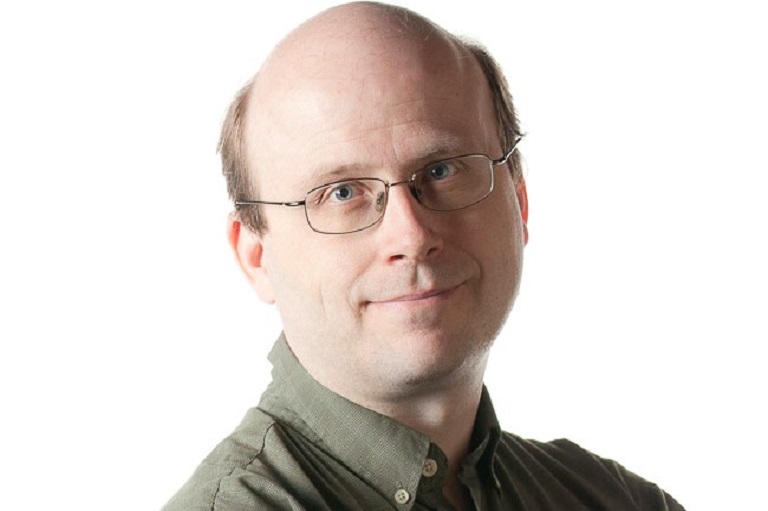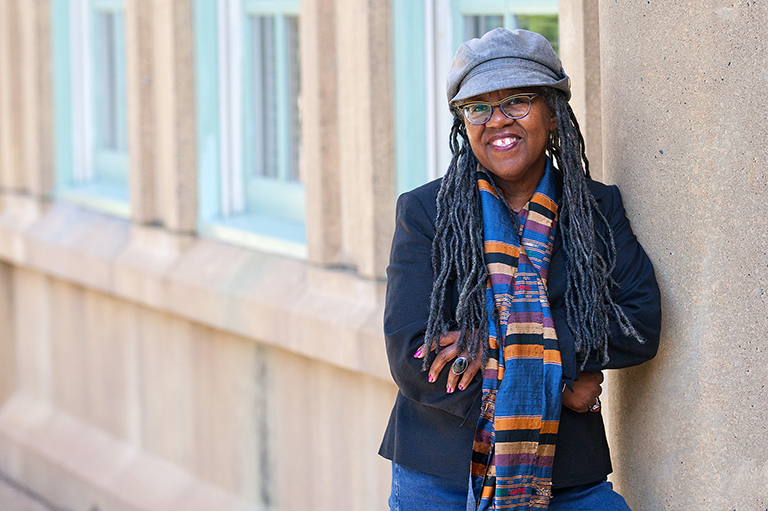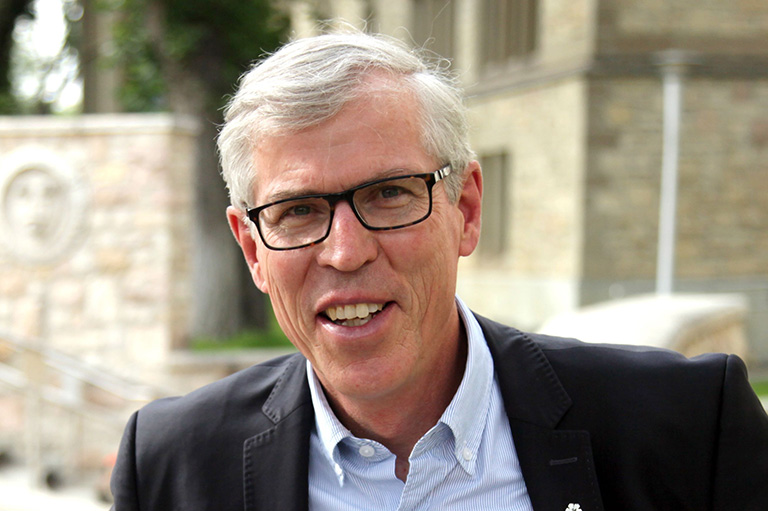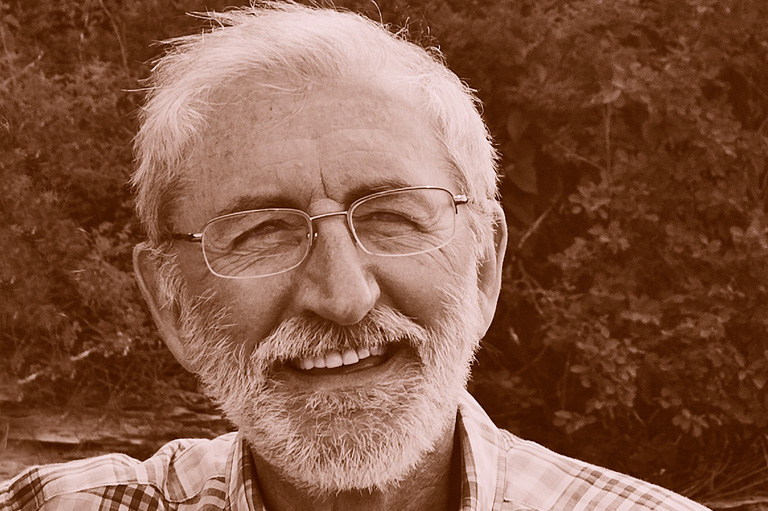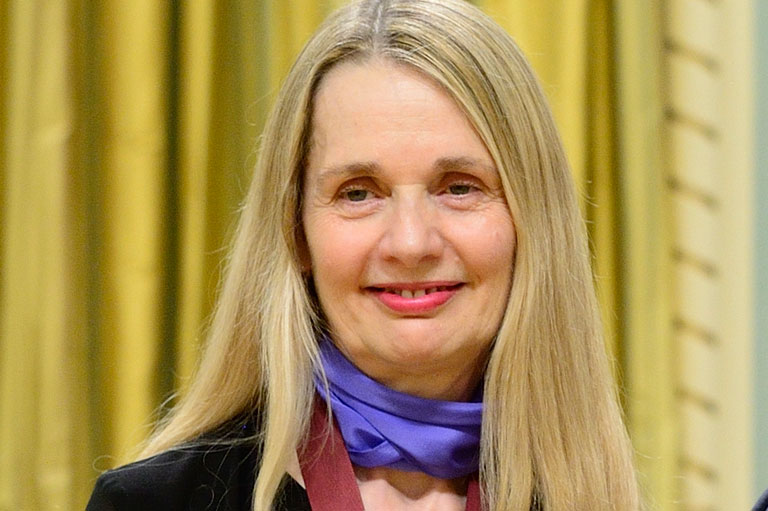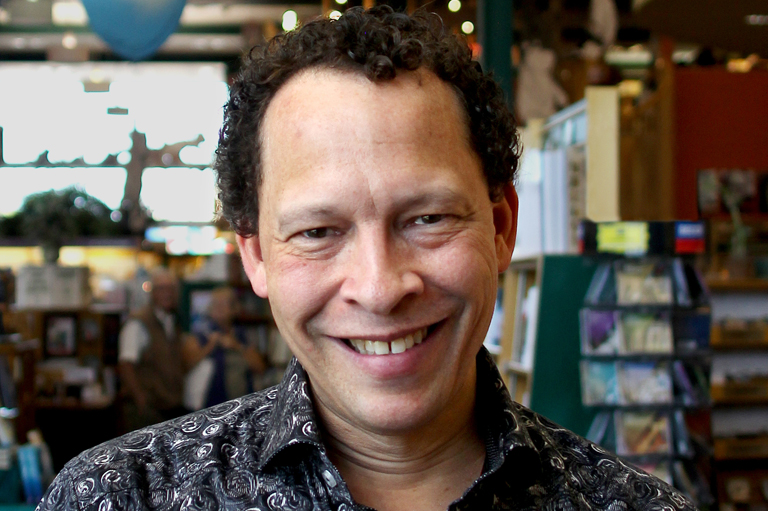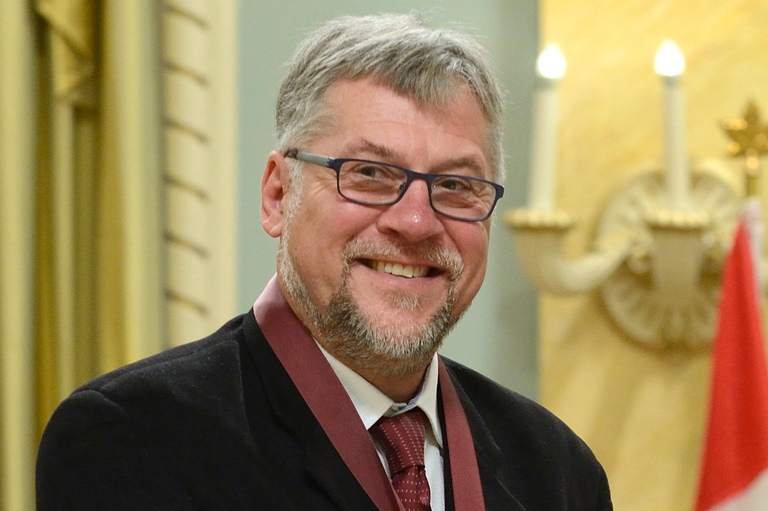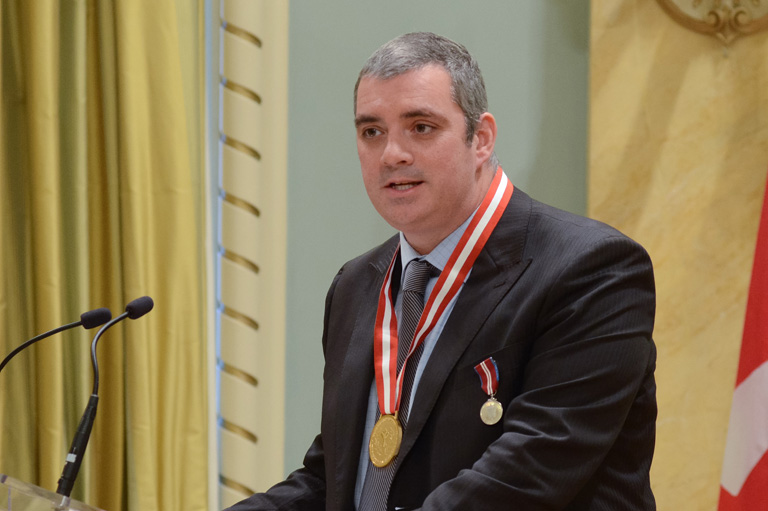Murray Sinclair
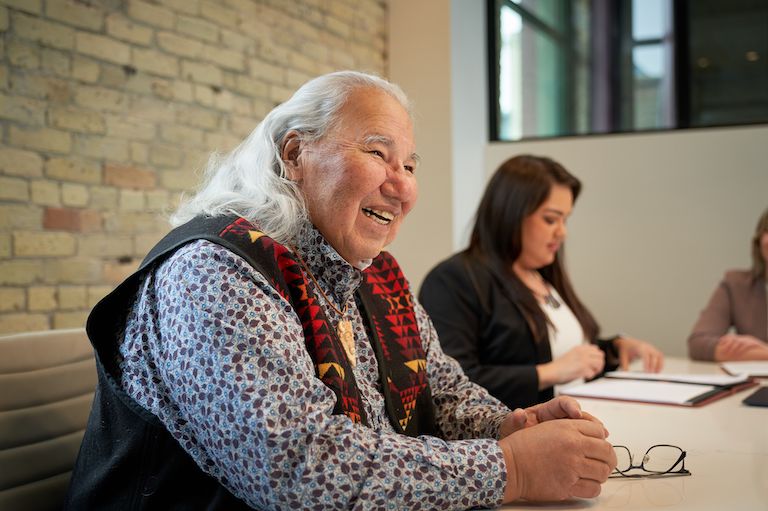
St. Andrews, Manitoba
The Honourable Murray Sinclair, C.C., M.S.C., is a former lawyer, judge, Canadian senator, and is currently the Chancellor of Queen’s University. A member of the Peguis First Nation in Manitoba, Justice Sinclair served as the chair of the Truth and Reconciliation Commission of Canada from 2009 to 2015, an investigation involving several thousand Indigenous witnesses who offered testimony to bring to light systemic abuses to Indigenous people in Canadian society, and specifically within the Indian residential school system. Sinclair’s work in deepening awareness of Canada’s shared and difficult history, coupled with a relentless commitment to build a better country moving forward, has restored forgotten and suppressed truths of the past.
The combined work of Sinclair and the Truth and Reconciliation Commission was monumental in scale and scope, having created unique historical archives that document the experiences of multiple generations of Indigenous people. The records in their many forms give voice to grief and hurt, resilience and renewal. Furthermore, the commission’s work, with its ninety-four calls to action, has been crucial in revealing the need for a new national narrative. Sinclair’s articulation of that mission has helped to create a profound shift in many Canadians’ understandings of this country’s history, while also charting a path forward based on respect, reciprocity, and good relations. The work of history, Sinclair has shown us, must play a critical role in fulfilling the imperative of reconciliation.
He explained that knowing where we come from helps us understand why our people are here, how people evolved, what our people believed in and continue to believe in. That is why our understanding of history is so important.
When I first attended university back in 1968 I majored in history and sociology for the purpose of determining answers to a number of questions I had for which I could not find answers in the books I studied in school. I thought that the books that I could read in university would contain much more information, about me and about my people. Sadly that was not the case.
Indigenous people have not been included in our study of Canadian history other than as passing references to them as though we were problems to overcome. In the past 30 years or so however our understanding and knowledge about historical events and activities has given us much more insight into Indigenous people and their relationship with each other, the earth, the beings of creation, the stars, the universe, and other peoples of the world including the settler population. We have come to see the validity of their spiritual ways, their cultures and languages, and their right to sovereignty. My ambition throughout my career has been to try to contribute to, and bring forward, that knowledge as much as possible.
I’m thankful that some of that work has been recognized for its importance including the work of the Aboriginal Justice Inquiry and the Truth and Reconciliation Commission. My ambition now is to ensure that other Canadians also know that history and understand the importance of it, for it too has shaped us all in being who we are, and believing what we do.
Understanding the answer to that very important question therefore is the very foundation for reconciliation. So long as I am living I hope to be able to contribute to that ongoing process.
And also to continue learning more about where I come from.”
— The Honourable Murray Sinclair
Advertisement

